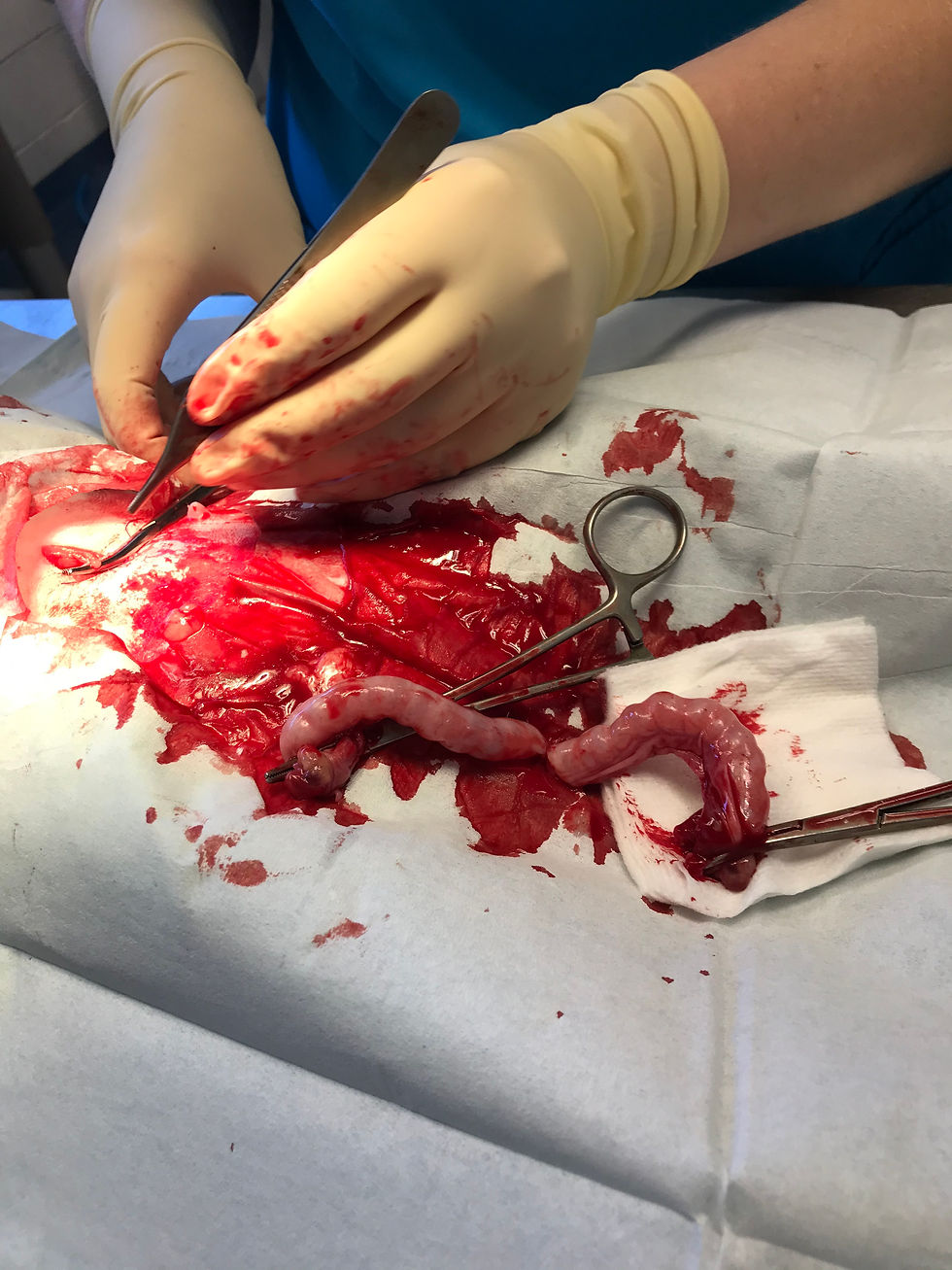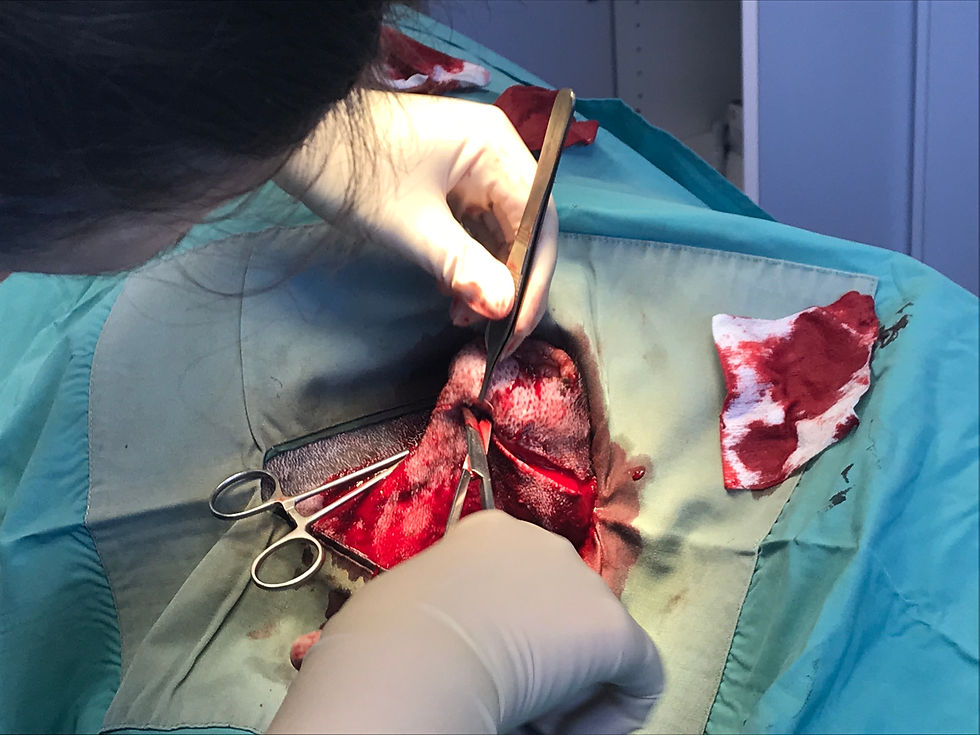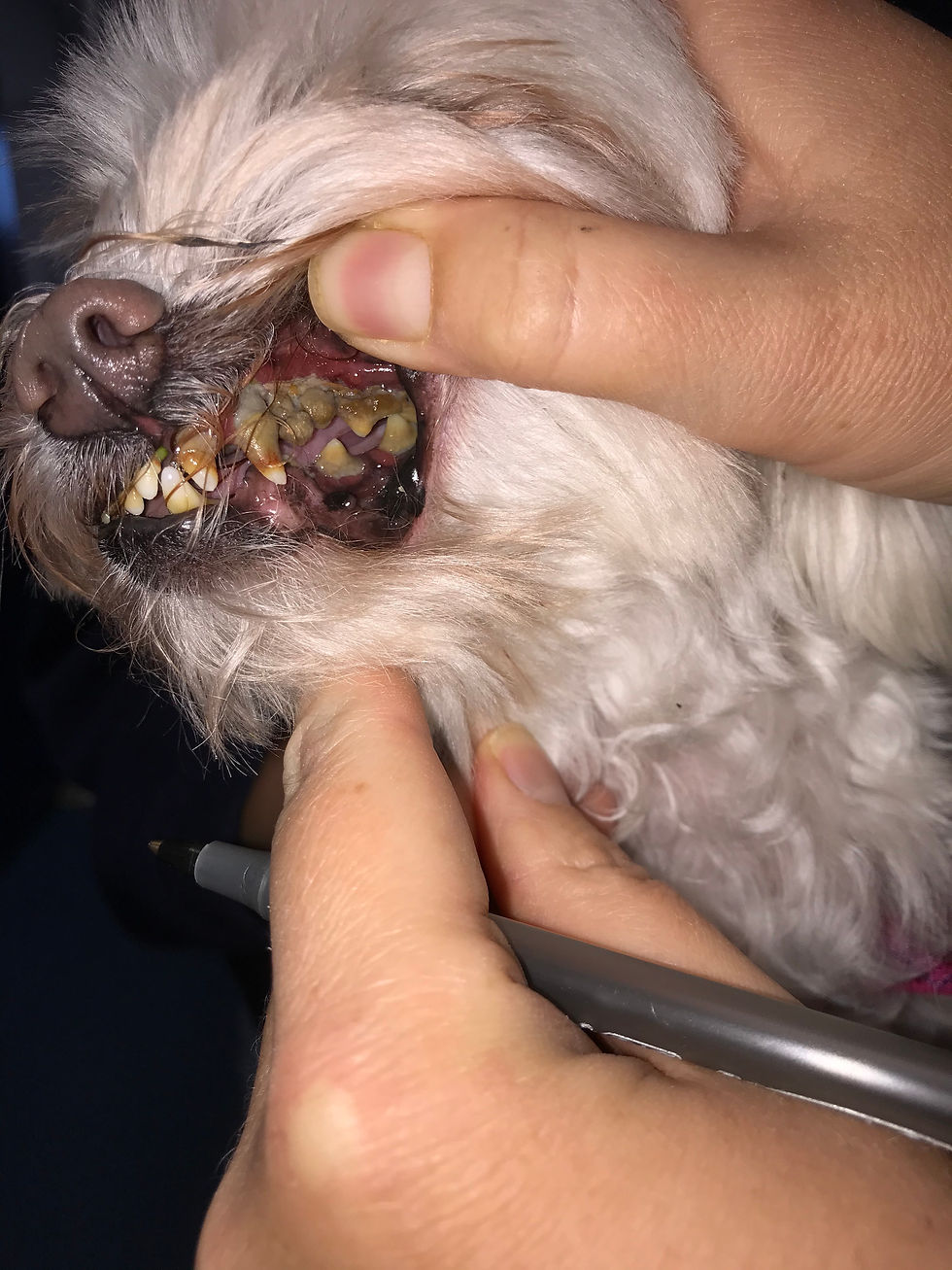A Thick Uterus and a Ruptured Tumor
- Gianna Scala

- Jan 6, 2020
- 2 min read
Updated: Jan 22, 2020
Interning at the Southampton Animal Shelter: Observing Spays and Neuters - October 26th, November 25th, and November 26th
During my time interning at the Southampton Animal Shelter, not only did I observe many routine procedures and surgeries, but I also observed surgeries that were not routine, causing obstacles to arise for the veterinarian.
The first surgery where this occurred was during a routine spay procedure. After searching for some time, the veterinarian eventually found the uterus with her spay hook, and discovered that the animal had a mucometra of the uterus. A mucometra of the uterus is when the animal's uterus becomes inflamed due to being filled with mucilaginous fluid. This inflammation of the uterus caused the surgery to be more difficult, and made it more crucial to the animal's survival. With extra precautions being taken, Dr. Mirante successfully removed the uterus without having to deal with any surgical complications.


I also observed the removal of a large (and most likely malignant) tumor from a canine patient's neck. This is a very complex procedure because the veterinarian needs to be able to read the situation and make quick decisions about the continuation of the procedure. This specific situation was even more complicated because the tumor was located on the region of the neck where the jugular vein resides, and if this vein is accidentally cut it would create severe complications.
Dr. Mirante is a great mentor and an amazing veterinarian, so it was not the least bit surprising that she was able to successfully remove the tumor. This was a long process because when removing such a large mass, especially with it being so close to the jugular vein, it is important to resect it a little at a time. If the veterinarian were to resect it all at once there would be excessive bleeding, and that would make it a very dangerous procedure for the animal. After taking the necessary time to resect the tumor bit by bit, she was able to successfully remove the majority of the tumor. Unfortunately, she was not able to remove all of the tumor as it was too close to the jugular vein.



Once she resected as much of the tumor as she could, Dr. Mirante sutured the blood vessels she had clamped, which had been causing excess bleeding. After the blood vessels were successfully ligated, she closed the opening from the incision, marking the end of the surgical procedure.


I was grateful for yet another opportunity to observe emergency procedures such as these, which again reinforced how important it is for veterinarians to be able to think on their feet. Even when going into a very routine procedure, such as a spay, veterinarians need to be prepared to be surprised. I was able to witness Dr. Mirante successfully respond to unexpected obstacles during these procedures, and I think understanding this important aspect of being a veterinary surgeon is crucial.



Comments